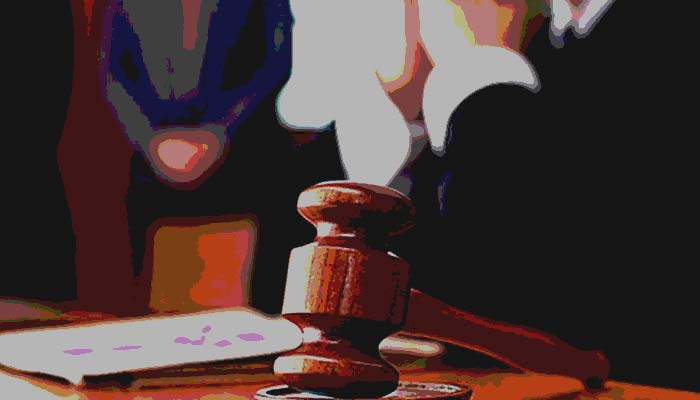The erosion of law
Recent cases due to be tried in ATCs give us pause to reflect on consequences resulting from over two decades of our war on terror
June 25, 2019

The recent cases due to be tried in the Anti-Terrorism Courts (ATCs) across the country should give us pause, cause us to reflect on what enduring consequences have resulted from over two decades of our experience with the war on terror. Though the precedent for parallel or separate courts to try militancy is not new nor without precedent, the threat it poses to the erosion of conventional law and order mechanisms is unprecedented. The regular court system, policing mechanisms, fair trial and other constitutional rights are under threat of being eroded irreparably unless the current approach to defining and trying instances of “terrorism” are rethought.
As the scholar Charles Kennedy has demonstrated, there is a history here of invoking terrorism to set aside regular judicial procedures and mechanisms to enable strict, unimpeded law enforcement against political opposition.
Both General Ayub Khan and Zulfiqar A. Bhutto employed such legislation. The latter’s Suppression of Terrorist Activities Ordinance remained in place for over twenty years across Sindh, Punjab, and Balochistan. The Anti-Terrorism Act of 1997, still current though amended several times, came into force during Nawaz Sharif’s tenure, and was used to counter a variety of militants, primarily those engaged in sectarian conflict. In one such case of Mehram Ali, a member of a Shia militant group, the Tehrik Nifaz Fiqh-i-Jafaria (TNFJ), the Supreme Court held parts of the ATA to be unconstitutional. Specifically, the Court found that special courts could not operate either in parallel or indefinitely. Simply put, the government could institute special courts but only if temporary and subject to the appellate jurisdiction of the regular courts.
The ATCs remained in force, however, though the Act was amended following the Mehram Ali ruling, and soon came to be employed to try Nawaz Sharif himself, by General Musharraf following his coup. The ATA was amended to include offences of hijacking, kidnapping, concealing designs to commit offenses against the state, and other provisions that expanded the ambit of the Act further into the territory of the regular Penal Code. The former Prime Minister was charged under the amended provisions, tried by an ATC and accordingly sentenced.
The danger that parallel courts will be used to stifle legitimate political dissent are fairly obvious, and have been of concern to international law formulations of the right to fair trial. In that regard, our experience in Pakistan with grappling with militancy is not without parallel.
In the 1990s, the Peruvian government, under the leadership of Alberto Fujimori, was confronted by the Communist Revolutionary Party, commonly known as the Shining Path. Classifying the militancy as a terrorist group, the government instituted special courts, including some that featured faceless judges, whose identities were hidden for their protection, and few fair trial safeguards.
The UN Human Rights Committee, responding to allegations of rights violations by anti-terrorism courts in Peru and elsewhere, noted that courts of special character may raise serious problems regarding equitable, impartial, and independent administration of justice. In the Committee’s General Comment on Article 14 of the International Covenant on Civil and Political Rights (ICCPR), it recognizes that military or special courts may be used, though “faceless” courts are not permitted, and such use should be exceptional; that is, limited to cases where the government can show that resorting to such trials is necessary and justified by objective and serious reasons, and where regular courts are unable to undertake the trials of the specific class of individuals and offences being tried. At the same time, however, the state must take all necessary measures to ensure that full guarantees of fair trial rights, as laid down in Article 14 of the treaty, are afforded, regardless of the heinous nature of the crimes committed by the person being tried.
That, certainly, is the standard for continued use of anti-terror courts. Yet, in the present war against terror, in which we are implicated, the danger is that exceptional measures will continue without end, permanently. In such a condition, and particularly under an excessively broad definition of the term, “terrorism,” anti-terror courts will continue to grow to displace regular courts, creating a self-fulfilling reality that the regular court system is not equipped to deal with emerging threats. All of these, including the ambit of the definition, the concerns it poses to take in legitimate non-violent dissent, the unabated and confusing use of the courts, and generally our current approach to countering violence needs urgent reconfiguration.
Ansari is Assistant Professor of Law at the Shaikh Ahmad Hassan School of Law at the Lahore University of Management Sciences. He tweets @EmadAnsariH











